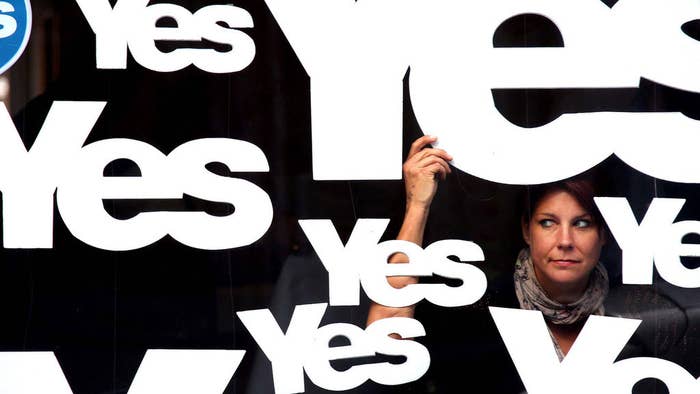
Andy Lythgoe doesn't care about the consequences for England or his family in Scunthorpe if Scotland votes for independence next Thursday. The property consultant, who moved to Scotland 25 years ago and is voting Yes, thinks the referendum is an issue only for those who live in Scotland.
"My family would become foreigners," Lythgoe, 57, a member of a group called English Scots for Yes, told BuzzFeed News. "What's wrong with that?" Although he considers himself English, and even declared himself happy to be English, he said he's voting Yes because he believes its the best option for the country he lives in.
"I just don't live in England any more, and it's basically a question of putting aside the question of identity. What's really important is the relative prosperity of the people of the nation. Even if I was madly wedded with the idea of being English, and I'm not, I don't think that would get in the way of me voting for a better place for Scots."
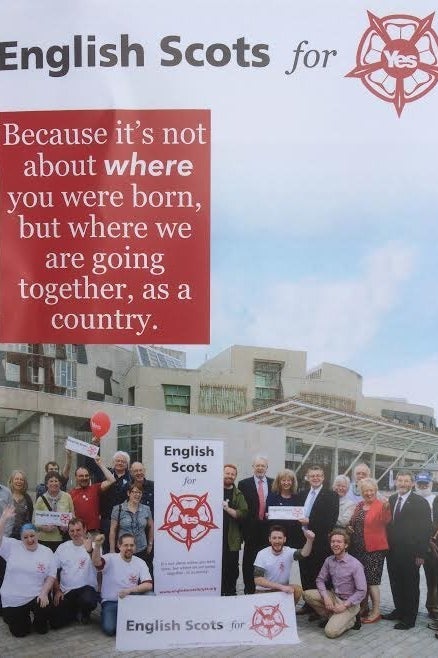
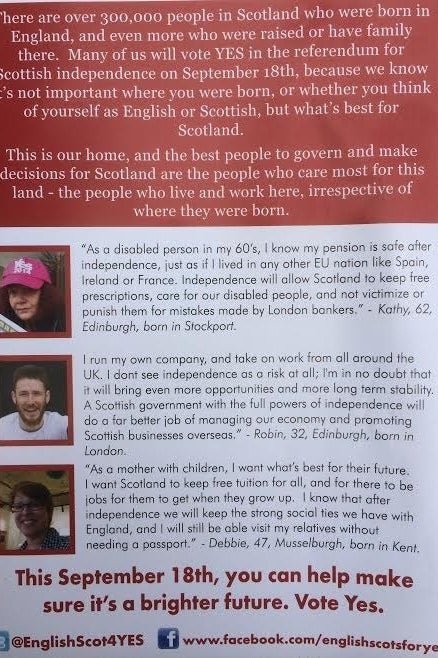
With polls pointing to an astonishingly unpredictable outcome, it's believed Scotland's English population may play an instrumental role in the final result.
With just seven days left to go, tensions are visibly increasing, and public shouting matches are becoming more common. When 60 Labour MPs travelled to Scotland this morning to help make the case for the union, a number of them were heckled by pro-independence supporters at a rally for the No campaign.
And although one poll said only 27% of English people in Scotland were in favour of independence, they might just prove the determining factor next Thursday.
Responding to accusations that he's abandoning his country, Lythgoe said critics simply don't understand the situation. "It isn't a betrayal. When I first came to Scotland 25 years ago, I would have been a No voter because I believed the government like everyone else. But I learned the truth when I came here."
For Lythgoe, the entire British political system is geared to ignore the 5 million people living in Scotland. And despite recent promises by politicians to give more political and economic control to Scotland, he simply does not trust them. "Westminster has been lying to its population for a generation [about the strength of its economy] and I don't like being lied to."
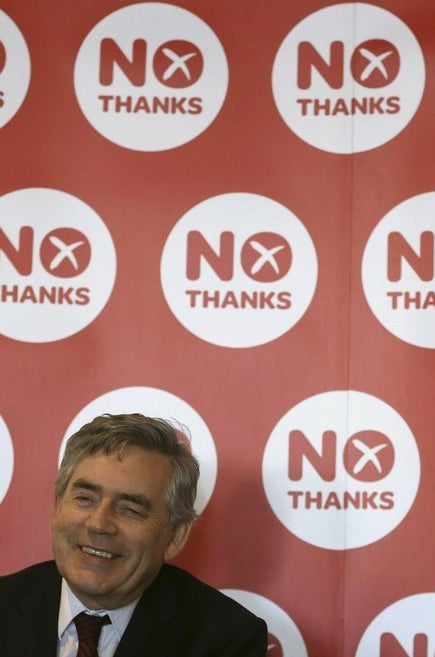
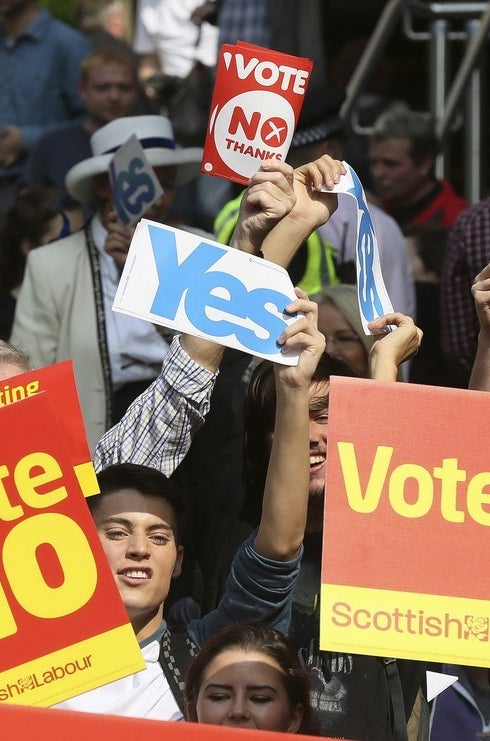

But as much as Lythgoe dismisses his English identity, he speaks without even the slightest twinge of a Scottish accent. The same goes for Math Campbell-Sturgess, who moved to Scotland from Suffolk more than a decade ago to be with "the love of my life". Campbell-Sturgess, 31, founded the English Scots for Yes campaign to show that many English residents in Scotland would be voting for independence.
Both men clearly share a common distrust of British politicians. Writing for Wings over Scotland, Campbell-Sturgess said he became a councillor because of the social deprivation he witnessed, and for which he places the blame squarely on the shoulders of Westminster. "London didn't seem to know the plight of my town on the Clyde, its social wounds caused by years of industrial decline and governmental neglect," he wrote.
"Or they just didn't care."
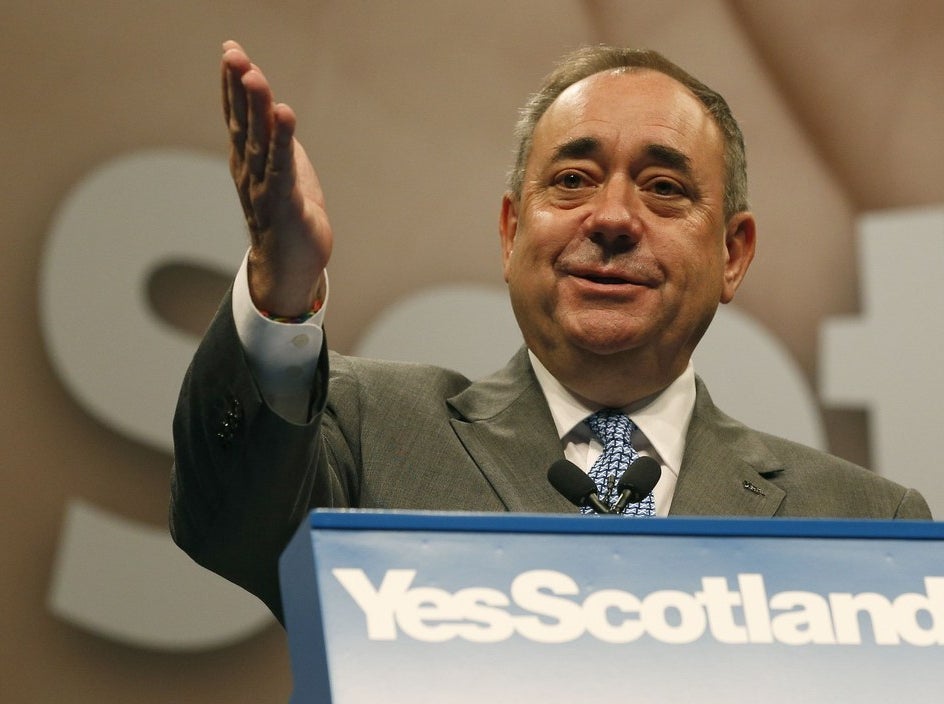
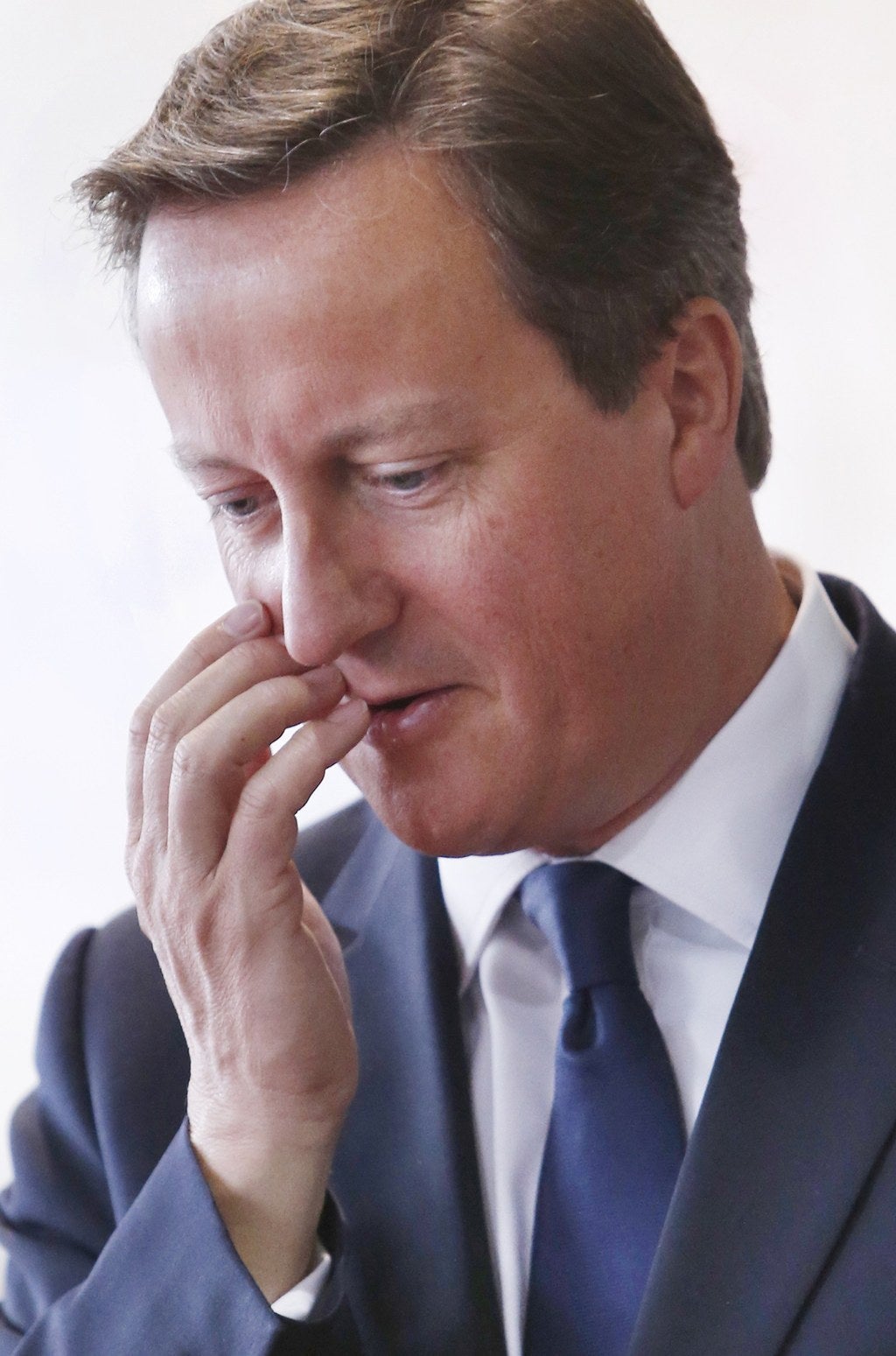
Now, he's demanding a change, arguing that Scotland is unfairly ignored.
"The reason we're voting Yes is pretty much the same reason a lot of people are voting Yes," Campbell-Sturgess told BuzzFeed News. "We want a government that Scotland elects; we want that government to have the powers to do things about social equity, increasing equality instead of decreasing equality as Westminster seems focused on."
But his biggest issue, perhaps, is that he simply doesn't believe a true British identity exists. "When someone American is told about Big Ben or red buses, he thinks that's English. When he's told about kilts, he thinks that's Scottish. Anyone, it's not just about England, it's about the rest of the UK as well."
Campbell-Sturgess is proud to be English, but said it's just not good enough any more. Instead, he wants a new country to stand behind and be proud of. "I don't see any particular loyalty to a country that has gone around the world and mongered war. It's not just for Scotland, it's for England too. We can be better than this."
Millions will take to polling booths to vote next week in a referendum that could, quite literally, mean the end of the UK as we know it. And the vocal English minority will play an instrumental role.

